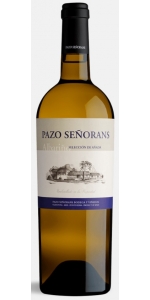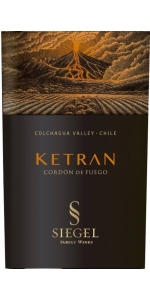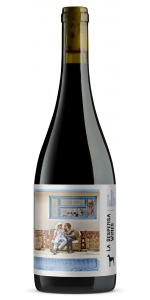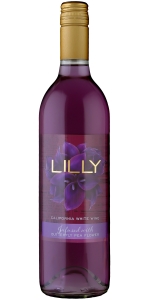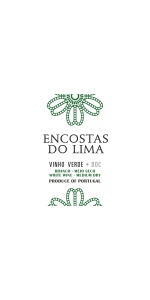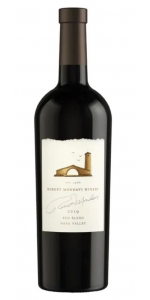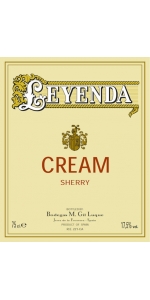Davila Rias Baixas White Blend 2014
| Country: | Spain |
| Region: | Rias Baixas |
| Winery: | Valminor |
| Grape Type: | Albarino |
| Vintage: | 2014 |
| Bottle Size: | 750 ml |
Pazo de Senorans Seleccion de Anada Albarino is made from 100 percent Albarino.
Straw yellow with greenish tints, vivid and brilliant. High intensity and very expressive. Profusion of aromas with traces of mineral. Great volume and ample body leaving a lasting impression from beginning to end.
Reviews:
I think the 2014 Albariño Selección de Añada could be the finest vintage of this characterful long-aging Albariño, from a year with a more moderate 13% alcohol and very high acidity (and low pH) that make the wine fresher and more vibrant. It is developing very slowly and showing quite young after it spent over 30 months with lees in 1,500- and 3,000-liter stainless steel tanks. It has a pale color and an elegant nose with notes of freshly cut grass, white flowers and wet granite. The palate is vibrant with effervescent acidity, and it has a long, dry and tasty finish with an austere sensation, far away from the tropical notes of some past vintages. This is superb and should continue developing nicely in bottle. Bravo! It wasn't bottled until April 2023, and 14,000 bottles were produced.
-Wine Advocate 96 Points
Tech:
Siegel Ketran Red Blend is made from 35% Syrah, 30% Petit Verdot, 25% Carmenere, 10% Cabernet Franc
Ketran is coming from the Mapuche Language and it means "plowed earth". In fact, Earth was plowed by fire from the volcanic acitivity. Ketran is a tribute to the volcanic soils that gave birth to the fantastic terroir of Los Lingues, located at the foothills of the “Cordillera de los Andes".
The wine is clean and bright in color.
The wine displays a very aromatic and elegant nose of ripe black fruit, prune and dried fig.
The mouthfeel is smooth and the length to the finish is quite exceptionnal, with sweet and fleshy tannins, balanced by a perfectly integrated acidity which gives the wine some freshness and emphasizes the presence of fruit and its ability to age.
Coming from the volcanic soils of Los Lingues, at the foothills of the Andes mountain.
The wine went through ML fermentation, it was then aged 24 months in French Oak barrels.
The wine has been slightly filtered before bottling.
Review:
"2014 is the second release of Siegel's top red wine, made from a four-way cuvée of Syrah, Petit Verdot, Carmenère and Cabernet Franc. Plush, spicy and smoothly oaked, with some tannic backbone and a glossy finish. Needs time. 2021-30"
- Tim Atkin MW (Chile 2019 Special Report), 94 pts
Ketran is Siegel’s most ambitious wine. Debuting with the 2013 vintage, it’s a selection of the best barrel lots from Los Lingues in the Andean zone of Colchagua. The blend works very well, especially if you let the wine breathe for a few hours beforehand. The oak steps aside, and the aromas of fruit and herbs take over in a red with firm, sharp tannic structure that leaves room for the acidity—not very prominent in a warm year, but still present—to achieve balance. This blend is for the cellar.
-Patricio Tapia - Descorchados 94 Points
La Despensa Boutique Pool Blend 75% Cinsault, 15% Pais, 5% Marsanne and 5% Roussanne.
A genuinely unique wine - La Despensa is the only producer of Cinsault in Colchagua and Pais from this valley is also extremely rare! The Cinsault and the 2 whites come from a new vineyard planted in 2017 and the Pais from a 150 year old, dry-farmed vineyard in Pumanque about 20 minutes from the winery that they run themselves organically. The Cinsault and Pais give notes of raspberry and strawberry and the white Roussanne and Marsanne a little mouthfeel and a hint of tropical fruit.
Organically grown grapes (not certified) from our own vineyard in Santa Ana, and Pumanque in the Colchagua Valley. Irrigated as sparingly as possible via drip irrigation (dry-farming for the 150 year old Pais). Hand harvested and sorted personally by me in the vineyard (I personally check every single bunch), then destemmed with the crusher removed from the destemmer. Grapes are fermented in open top bins and concrete tank and blended immediately after pressing. MLF occurs with the wine already blended. Wines are racked in November and again in January before being bottled after about 10 months ageing in 50% neutral oak barrels and 50% Flextank.
Versatile, goes well with beef, chicken, pasta, great for Summer BBQs
Review:
"The red blend 2021 Wines Pool Blend was produced with an unusual blend, especially for a wine from Colchagua, of 75% Cinsault, 15% País and 5% each Marsanne and Roussanne. It has kept a moderate 13.5% alcohol and retained good freshness (pH 3.44) after maturing exclusively in Flextank and being bottled unoaked. This is fruit-driven and straightforward, with a medium-bodied palate and fine tannins. 2,400 bottles produced. It was bottled in March 2022. - Luis Gutiérrez"
- Robert Parker's Wine Advocate (April 2023), 90 pts
This new California white wine blend is infused with Butterfly Pea Flower, giving it its bold color.
6% alcohol!
Bright acidity cuts through a light sweetness reminiscent of a mixed berry pie. Subtle notes of juicy boysenberry and blackberry balance with an acidity that leaves you wanting to take another sip.
The first California white wine infused with Butterfly Pea Flower!
Lima Adega Vinho Verde is made from 80% Loureiro and 20% Trajadura
All Vinho Verde (or green wines – meaning young, not green in flavor) are the best in the first 18 months. The wine is fresh, crisp, lively with a touch of spritz. It has some very interesting aromas of stone fruit and lime.
Portuguese Vinho Verde with a screwcap!
Loureiro: Loureiro is a white vine variety grown in the northern region of Portugal that produces an aromatic bay leaf scent. The pale-skinned variety is used to make the Vinho Verde white wine that of the Minho region.Traditionally, Vinho Verde wines include Trajadura and Pederna, but varietal Loureiro wines are becoming increasingly popular. The Loureiro variety is also grown in smaller batches in Galicia, which sits to the north of border of Spain. Loureiro variety grapes are high in acid and is sometimes called "Branco", "Marques", or "Redondo". In this region, the variety is used to create the Rias Baixas white wine, and is typically blended with the variety, Albarino. The wine works perfectly with fish, grilled good, sushi, shellfish, salads or fruits. The wine also pairs nicely with clams and white wine or fresh spring rolls. The variety is high in acidity and is typically bottled with a shot of carbon dioxide to maintain the quality of the wine and to give it a nice, bubbly texture. The taste of the wine includes aromas of citrus, tropical fruits and a mineral tone, and also has hints of floral aromas.
Trajadura: Trajadura is a white grape varietal also known as Treixadura. Trajadura originates from Portugal, particularly the Northern region. Trajadura is most famously used in Portugal's Vinho Verde wine, but Trajadura is also utilized in blends to add fullness and brisk citrus flavor. The low acid content in Trajadura, combined with a higher alcohol content make it an ideal and rare blending component in this particular climate region. When Trajadura is blended with Loureiro and Albarino it is the perfect balance for Vinho Verde. In Spain, Trajadura is called Treixadura and is most commonly found n Rias Baixas and Ribeiro. Spain also takes advantage of the blending characteristics while combining with Albarino, Abillo, Lado, Macabeo, Godello, and Torrontes. The Trajadura vines are recognized by average sized bunches that are dense with moderately sized berries. Trajadura ripens early, so to keep the acidity, it must be harvested rather early. The flavor profile for Trajadura will consist of apricot, peach, apple, lemon, and pear.
With low alcohol, it is best as an aperitif or with seafood. Definitely a summer drink.
Robert Mondavi Winery Napa Red Blend is made from 74% Cabernet Sauvignon, 13% Cabernet Franc, 9% Merlot, 4% Petit Verdot.
Robert Mondavi’s vision was to elevate Napa to the world stage. In celebration of his achievement, our Napa Tier wines are sourced from distinctive vineyards throughout the Napa Valley and truly emulate a classic Napa Valley style.
Nearly half of this year’s blend is sourced from the deep, well-drained soils of Oakville, which provides gorgeously dark, supple wines with fine tannins. Stags Leap District, Oak Knoll, Yountville, and Rutherford also find their place in the bottle, with the varying mesoclimates and soils of these vineyards integrating seamlessly into a 100% Napa Valley blend.
Review:
"Dominated by 80% Cabernet Sauvignon with smaller percentages of the other Bordeaux red grapes, this wine speaks of heritage and prestige. Broad, silky, and powerful, the graceful liquid is enhanced by dark chocolate, white pepper, black plum, violets, and sweet earth."
-Meridith May, Tasting Panel, January/February 2023 Pts. Tasting Panel
Davila Rias Baixas White Blend 2014 is made from 80% Albarino, 15% Loureiro, 5% Treixadura
Davila presents a yellow lemon color, clean and bright with steely details. On the nose, DAVILA shows a wide and complex range of spring-flower aromas, highlighting notes of pineapple and mango. In the mouth it is velvety and fresh, with a good structure. It passes with delicacy filing the palate with a complex load of tropical fruits intermingled with aromatic herbs.
Davila is produced with two very local grapes, typical from the Rosal valley (one of the sub-regions of Rías Baixas). That´s why this kind of wine is normally called "Rosal Wine". This is our most personal wine and it is the only wine that takes the mother´s last name of the owner (Carlos Gómez Davila).
Pre-selection and grape analysis from the vineyards. Sorting table in the winery before destemming. Cold maceration (10ºC) during 6-8 hours. Static settling of the juice. Pressing. Alcoholic fermentation (each grape separately) under an automatic temperature control. Ageing on the lees for the Albariño and Loureiro grapes in stainless steel. Stabilization. Filtering through a tangential filter and bottling. Resting in the bottle for sixty days prior to distribution.
Pairs with fish-based rice, cod, grilled shellfish, grilled white fish, baked white fish.
The Valminor Estate
One of the newcomers, Adegas Valmiñor was founded in 1997 and is based in Rosal and boasts a new, ultramodern winery that produces 25,000 cases yearly of 100% Albariño "Valmiñor". (Note: “Adegas” means “bodegas” [winery] in the local Galician dialect). Owner, Carlos Gomez, makes about 3 different white wines, but Albariño is his speciality.
Carlos Gómez started Valmiñor in 1997 and headed up the project to build and open the new facilities in 2001. A trained executive with extensive experience in the wine business, Carlos founded Valmiñor and has since continued to expand the group's capacity to include Bodegas Ebano in Ribera del Duero in 2004, and more recently acquired a second Rías Baixas producer, Viñas o Torroxal. Today the group also includes a distribution company, as well as an agricultural services organization.
he winemaker Cristina Mantilla has been working as Valminor's winemaker since the very beginning in 1997. She obtained a Chemical Degree at the prestigious University of Santiago de Compostela and post-graduated in Oenology and Viticulture in Madrid. She started working in Rías Baixas but as her experience grows she also works beyond the Galician borders. In 97 Carlos Gómez founded the winery and Cristina Mantilla decided to join and give birth to a new and dynamic project with a very clear idea in mind.
Cristina has been the sole winemaker from the very first vintage of all the wines elaborated at Valminor and the bodega in Ribera del Duero, EBANO.
Cristina has furthered her carreer by producing white wine from 100% Loureiro grapes (skin contact versions) and she made the first ever Rosé style wine in Galicia. She is definitely a pioneer in making unique wines in Galicia.
The Valminor Vineyards
Galicia has a mild climate without dramatic changes in the weather, a soil rich in minerals and excellent conditions for maturing and it makes this valley the perfect place for growing quality varieties like Albariño, Loureiro and Treixadura.
Adegas Valmiñor owns 34 hectares in O Rosal, and uses purchased fruit from two prime growing areas: 40% Cambados and 60% Arbo fruit (a unique micro-climate that is a touch warmer than other areas). The Cambados region is located on the coast and provides acidity and freshness to the wine. Together the two fruit sources make a superb blend. Valmiñor means "minor valley" and today Valmiñor has built a new winery in O Rosal.
Dark mahogany. Aromas of dried fruits, oak and raising notes. Smooth, well balanced, rich and complex with a long after taste.
To be served on its own at room temperature, chilled from the fridge or over ice 'on the rocks'. Also a superb way to accompany desserts, pastries and cured cheeses.
- back
Reviews:
On the savory side, this red opens with freshly mowed grass, hay and eucalyptus aromas before revealing cherry, strawberry, rose and mineral flavors. Fleshy, with a matrix of dense tannins flexing their muscles on the finish. Shows excellent potential. Best from 2023 through 2042.
-Wine Spectator 96 Points
Floral and red fruit nose. Supple attack, very polished and concentrated, with fine-grained tannins and ample acidity. This has a linear drive, precision. and a very long finish. The rewards will be substantial for the patient consumer.
-Decanter 97 Points
Capra Marco Doppiadi Barbera d'Asti is made from 100% Barbera.
Color: very deep bright ruby red with violet hues.
Bouquet: intense and persistent, pleasantly fruity and reminiscent of plums and black cherries.
Flavor: vinous, full, pleasantly fresh and generous.
Suitable as an aperitif with appetisers and sliced meats, it is perfect throughout a meal. it is perfect with pasta dishes featuring tagliatelle and ravioli, as well as with meaty main courses, such as stews and roasts. Interesting with medium-mature cheeses, with Toma and Pecorino.



